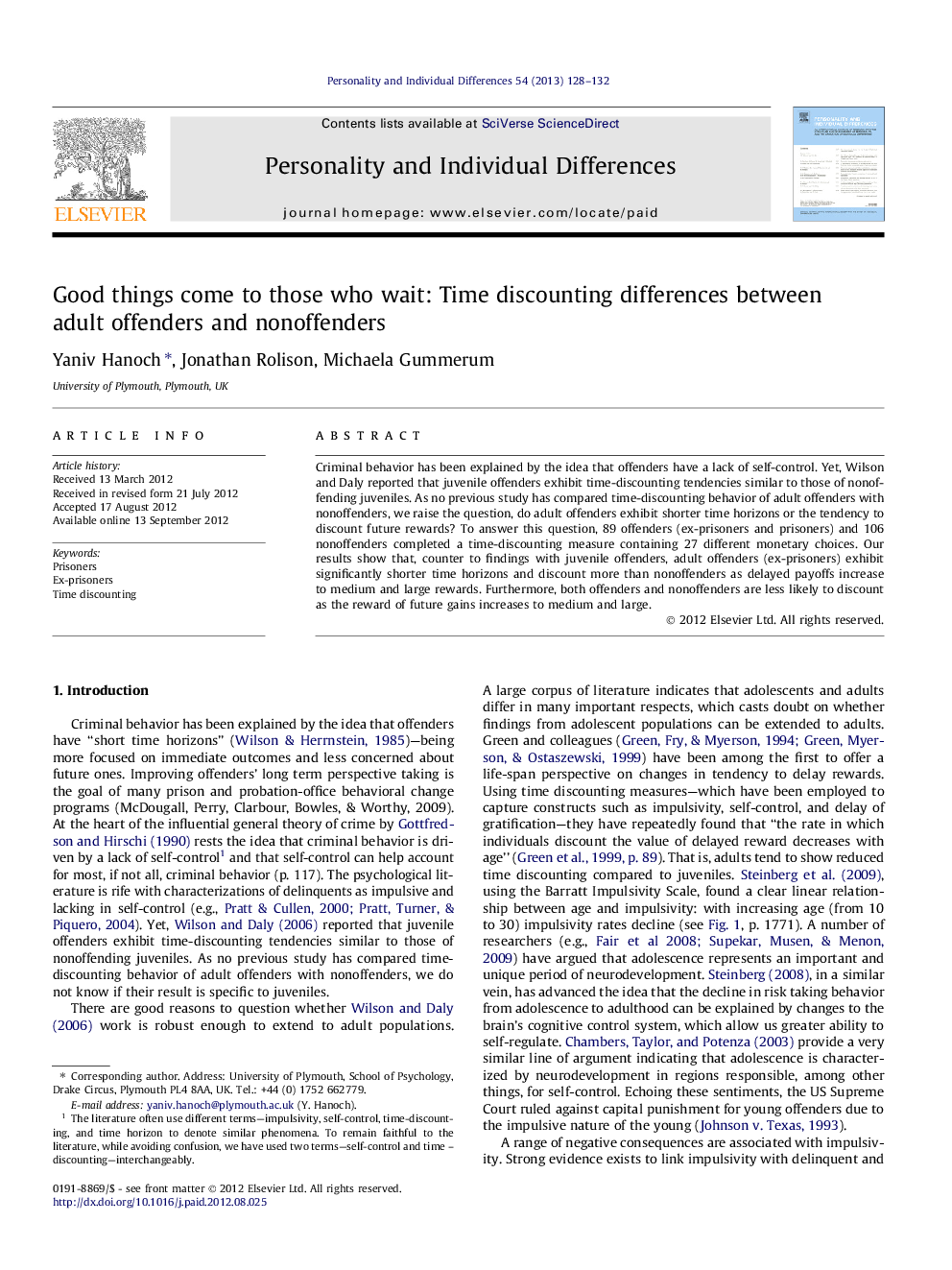| Article ID | Journal | Published Year | Pages | File Type |
|---|---|---|---|---|
| 890928 | Personality and Individual Differences | 2013 | 5 Pages |
Criminal behavior has been explained by the idea that offenders have a lack of self-control. Yet, Wilson and Daly reported that juvenile offenders exhibit time-discounting tendencies similar to those of nonoffending juveniles. As no previous study has compared time-discounting behavior of adult offenders with nonoffenders, we raise the question, do adult offenders exhibit shorter time horizons or the tendency to discount future rewards? To answer this question, 89 offenders (ex-prisoners and prisoners) and 106 nonoffenders completed a time-discounting measure containing 27 different monetary choices. Our results show that, counter to findings with juvenile offenders, adult offenders (ex-prisoners) exhibit significantly shorter time horizons and discount more than nonoffenders as delayed payoffs increase to medium and large rewards. Furthermore, both offenders and nonoffenders are less likely to discount as the reward of future gains increases to medium and large.
► We are the first study to examine whether adult offenders’ discount future rewards. ► Ex-prisoners did discount delayed rewards more pronouncedly than nonoffenders. ► Offenders and nonoffenders discount rates were sensitive to rewards’ magnitudes.
